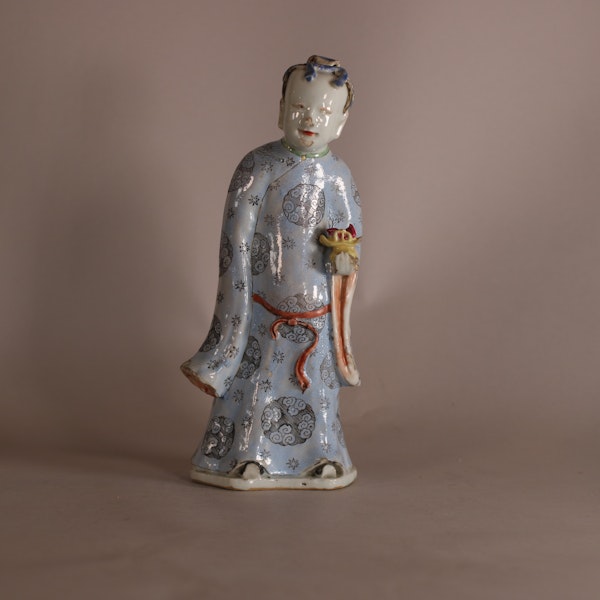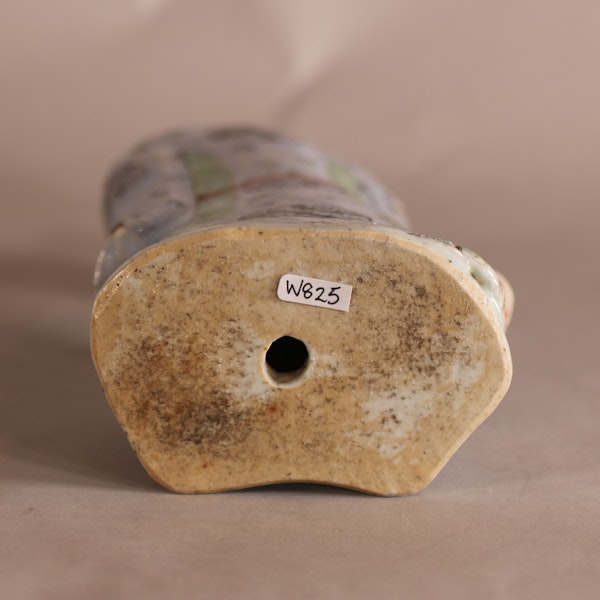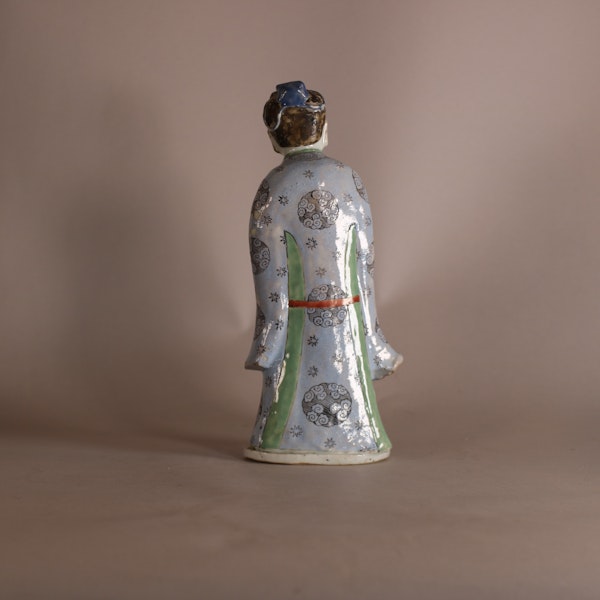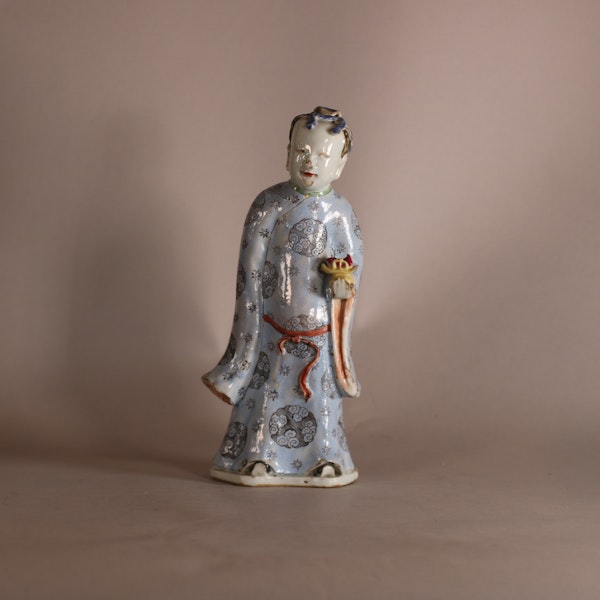Chinese famille rose figure of He Xiangu, Qianlong (1736-95)
Chinese famille rose figure of He Xiangu, Qianlong (1736-95)
POA
Description
Chinese famille rose figure of He Xiangu, Qianlong (1736-95), standing with a lotus bloom in her left hand, dressed in long flowing robes of blue with star and cloud roundel pattern, tied with a red cord, her toes visible underneath the hem of her gown.
Condition: Flakes to glaze; chips to hair and end of sleeve; please refer to images
Notes: The Eight Immortals are a legendary group of Daoist figures said to have lived during the Tang or Song dynasties, and appear as a group on artwork dating back the Jin dynasty, though evidence survives suggesting that worship of individual Daoist immortal figures was prevalent during the Han. Individual porcelain figures of the Immortals were also popular during the Qing dynasty, and were displayed on family shrines. The only female immortal amongst the eight, He Xiangu is often depicted holding a lotus and is associated with wisdom and purity. According to legend, her immortal status is due to a diet of mother of pearl and moonbeams; occasionally she is also seen holding a peach. This refers to the ‘Feast of the Peaches’, held by the Jade Emperor, ruler of all of the Heavens, and his wife, the Queen Mother of the West. This legendary banquet features prominently in Ming novels including Journey to the West (attributed to Wu Cheng’en c.1500-c.1580). It is supposedly held at the Jade Pool of the Emperor’s Golden-Gate Cloud Palace to celebrate the ripening of the peaches from the Queen Mother’s Garden. These peaches of immortality only ripen every few thousand years, and are shared amongst the immortals to sustain them until the next banquet. In this case, He Xiangu is holding a lotus, which within the Daoist tradition is associated with purity and the Immortals’ transcendence over the cycle of life and death. In a similar way to the Buddhist tradition, for Daoists the lotus emerges from muddy waters while remaining untainted, much as practitioners of the religion aspire to attain spiritual purity and transcendence of the mundane world.
| item details | |
|---|---|
| Material and Technique | Porcelain figure with enamel decoration in the famille rose palette |
| Origin | Chinese |
| Period | 18th Century |
| Dimensions | Height: 23.5cm. (9 1/4in.) |
Product REF: W825








